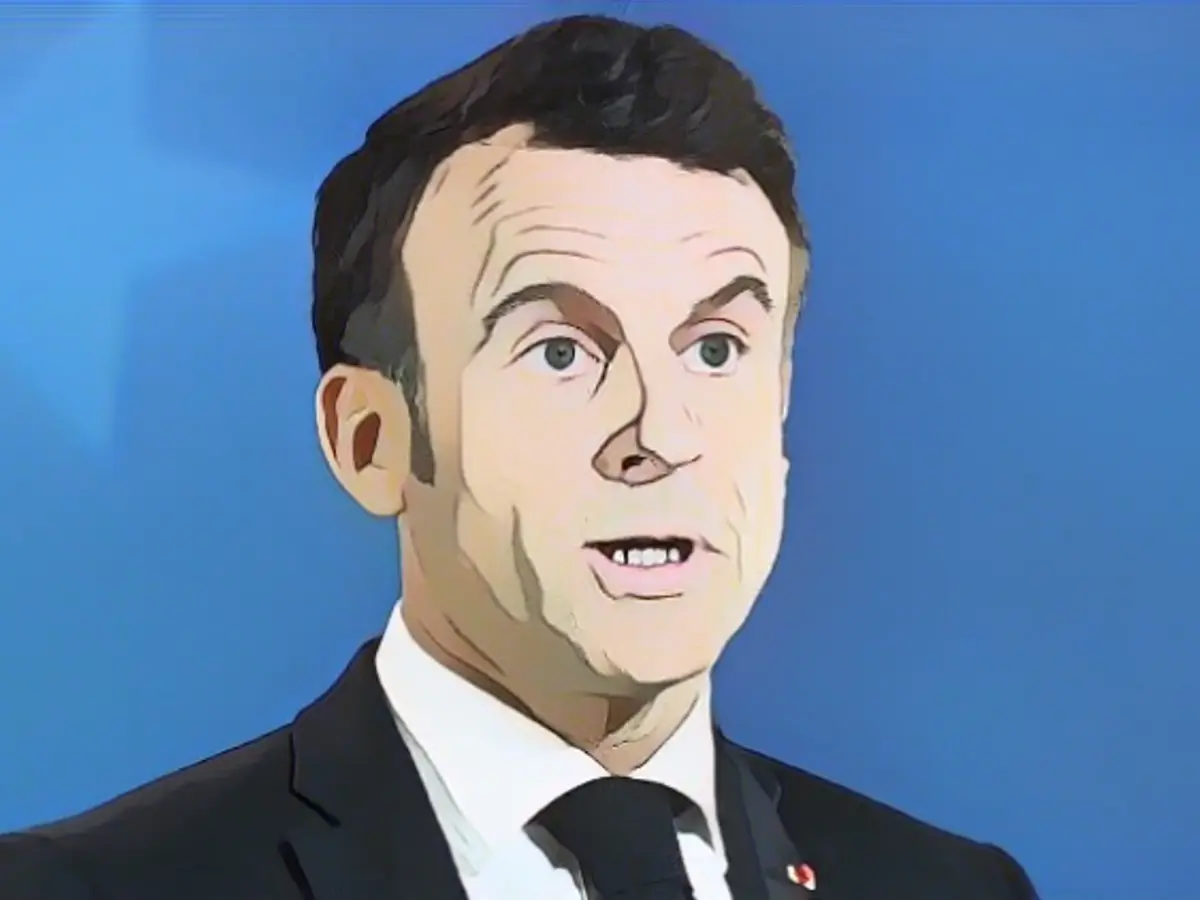Paris government threatens to collapse over immigration law
After much wrangling, the French National Assembly passes a significantly tougher migration law. The consequences: President Macron has the constitutionality of the law reviewed, Le Pen is scorned and ministers threaten to resign.
French President Emmanuel Macron wants to have the constitutionality of an immigration law that has just been passed and is controversial within his camp examined. "The President will refer the matter to the Constitutional Council and the Constitutional Council will say what the situation is," Prime Minister Élisabeth Borne told the France Inter channel in Paris. Macron himself wants to comment on the struggle over the law on television this evening.
Borne pointed out possible contradictions: "For example, if someone marries a Canadian or a Japanese who doesn't speak French well, they can't come to France. I don't think it can stay that way."
With this project, the government wants to better control immigration and improve integration. However, the adopted legal text is significantly more restrictive than originally intended. Regular migrants are to receive social benefits such as housing subsidies or family allowances later than before. Parliament is to debate annual immigration quotas. In addition, the criminal offense of irregular residence, which was abolished under Socialist President François Hollande in 2012, is to be reintroduced. Dual nationals who commit crimes against law enforcement officers are also to lose their French nationality.
One of the core measures of the government's plan, according to which migrants working without residence papers in professions with a shortage of staff are to be granted a temporary residence permit, will only be implemented in a much more limited form.
Macron's centrist camp no longer has an absolute majority in the French National Assembly since the parliamentary elections in June 2022 and is therefore dependent on votes from the opposition for its plans. After the left-wing camp, the conservative Républicains and the right-wing nationalist Rassemblement National rejected the legislative text in the National Assembly last week before the plenary debate, the centrist government sought a compromise in a commission. In order to secure the approval of the conservatives, it made considerable concessions to them. Resistance also came from within its own ranks.
Members of the government are considering resigning
The text that has now been adopted was drawn up within a few hours by the 14 members of a parliamentary conciliation committee. President Emmanuel Macron had used personal phone calls to exert pressure to find a compromise quickly.
In the National Assembly, 349 MPs ultimately voted in favor of the text, while 186 voted against. Around a quarter of the government camp voted no. At least three members of the government from the left wing had considered resigning, according to ministry circles. However, there can be no talk of a crisis in the government camp, Borne explained. The right-wing populist parliamentary group leader Marine Le Pen had declared the law an "ideological victory", as it enshrines the "national priority".
Similar to the German Federal Constitutional Court, the French Constitutional Council reviews laws and projects for their legality. If the Council examines the constitutionality of a law before it comes into force, a decision is made within thirty days, in urgent cases within eight days. If Macron appeals to the Constitutional Council before Christmas, it should be clear in January whether he can bring the law into force in its current form or whether it needs to be amended.
Read also:
- Year of climate records: extreme is the new normal
- Precautionary arrests show Islamist terror threat
- UN vote urges Israel to ceasefire
- SPD rules out budget resolution before the end of the year
Emmanuel Macron, the French President, is contemplating challenging the constitutionality of the recently passed immigration law in the wake of its controversial passage within his political circle. Despite Marine Le Pen's victory declaration, this move by Macron has led members of his government to consider resigning due to the controversy surrounding the bill.
Source: www.ntv.de








